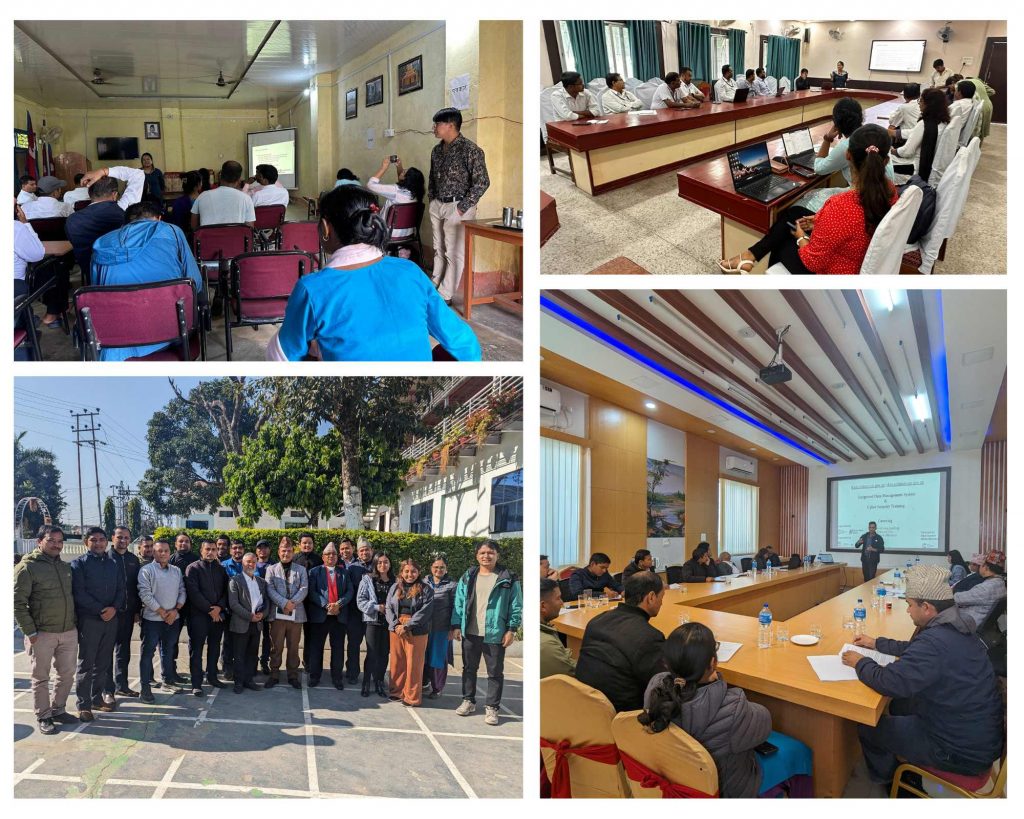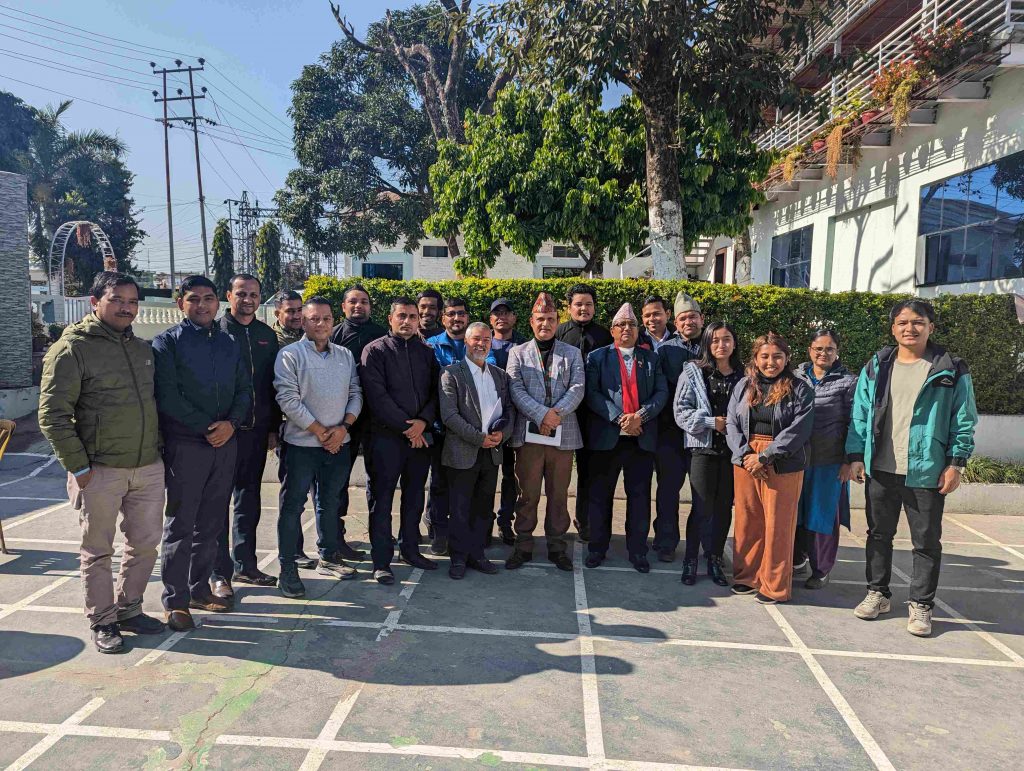Blog
Intervening local government’s data management with assistance from data fellows
Open Knowledge Nepal
|Thu Feb 15 2024
Recognizing the imperative to intervene in local government data management, Open Knowledge Nepal initiated the Local Government (LG) Data Fellowship for three municipalities: Birgunj Metropolitan City, Tulsipur Sub-Metropolitan City, and Lekbeshi Municipality. This blog delves into the specifics of Phase II of the LG Data Fellowship, which serves as a continuation of Phase I. During the initial phase, the fellows’ activities revolved around utilizing an Integrated Data Management System (IDMS) to aid municipal bodies in digitizing municipal data and crafting use cases based on the gathered data. A significant outcome of this phase was the introduction of IDMS features and workflow. The data fellows gathered, refined, and digitized municipal data, subsequently integrating it into the IDMS.

The IDMS represents a novel system for Local Governments, and the fellows played a crucial role in equipping municipalities with the necessary skills to utilize the IDMS effectively. Their efforts included:
- Facilitating understanding of user management and access control within the IDMS to ensure proper ownership and management of data.
- Provide training on the workflow of the IDMS tailored to various roles in data management, including admin, data editor, data publisher, and data viewer.
- Ensuring the maintenance of the IDMS and overseeing the upload of municipality data to the central hub of the IDMS, making it accessible for both municipal and public use.
During the initial phase of the fellowship, there were challenges encountered in implementing municipalities, primarily due to server downtime issues. Drawing from the lessons learned and challenges faced in the initial phase, the fellowship activities were strategically planned and executed during Phase II, with the primary goal of institutionalizing the IDMS in implementing municipalities.
Activities carried out during Phase II of the LG Data Fellowship included:
- Data Collection and Integration into IDMS: Building upon previous data collection efforts, the focus shifted towards gathering types of data that had not yet been incorporated into the IDMS. Fellows successfully retrieved historical datasets from various departments, digitizing non-digital data and uploading them onto the IDMS platform.
- Capacity Building and Training: Two capacity-building and training programs were conducted in the implementing municipalities, coordinated by data fellows. In addition to these main training events, fellows provided ongoing support to municipalities, assisting them in building their capacity and guiding IDMS users in effective data management practices.
- Feedback Collection and Support: Recognizing the importance of ongoing feedback and support for the sustainability of the IDMS, fellows actively collected feedback and requirements from municipalities. This information was utilized by OKN and Digital Rights Nepal (DRN) to draft IDMS operation procedures, which are crucial for the adoption of IDMS.
- Oversight of IDMS Adoption: Data fellows played a vital role in assisting municipalities with the integration of data into the IDMS. They closely monitored the usage of the IDMS by municipal staff, generating strategies to facilitate the adoption of IDMS and streamline its workflow within the municipality.

Learning and Opportunities
This phase has afforded us the chance to accumulate various insights that can be integrated into our activities to ensure the effectiveness and sustainability of IDMS. We have recognized that the operation procedure for IDMS serves as a pivotal cornerstone for its sustainability. Initial procedures have already been formulated through collaborative efforts. Integrating various aspects such as assigning responsibilities for system operation, monitoring usage, ensuring quality assurance, conducting periodic data reviews in the IDMS, and allocating finances for system updates and maintenance would contribute to establishing IDMS as a mature system.
Enhancing the data culture within municipalities through the utilization of IDMS presents a unique opportunity. Through observations made during this phase, we have concluded that the data ecosystem surrounding municipalities predominantly revolves around data generation and collection. The utilization of data in decision-making processes and policy drafting has been limited. IDMS presents a unique opportunity to demonstrate the utilization of data generated across different departments in a centralized space accessible to decision-makers. This presents a unique opportunity to enhance the overall data culture and foster collaboration between various stakeholders.
Improving the long-term effectiveness of the data system hinges on data quality and management strategies. Presently, the data practices do not meet the FAIR standard. The challenge lies in instilling FAIR principles throughout the entire data practice within municipalities. Demonstrating the FAIR principle within IDMS would aid in standardizing data sharing and management practices.
Way Forward
The prospect of data collected in the IDMS, along with our understanding and experience of the data ecosystem within municipalities, presents us with a unique opportunity to demonstrate the impact of IDMS intervention. By fostering collaboration among municipality IDMS users to generate narratives and insights using IDMS, we can showcase data-driven policy and decision-making. Leveraging the collected data in IDMS to enhance dashboards for various audiences and identifying the data needed for key indicators represent significant opportunities for fellows. Additionally, focusing on feedback collection, overseeing IDMS usage, and refining IDMS operation procedures are crucial for ensuring sustainability.
Moving forward, we anticipate engaging in activities aimed at extracting insights from the collected data. The next phase will prioritize intensive training in data analysis and interpretation.
Acknowledgment
Open Knowledge Nepal extends its sincere gratitude to the staff of Birgunj Metropolitan City, Tulsipur Sub-Metropolitan City, and Lekbeshi Municipality for their unwavering support throughout the project’s implementation. We also wish to acknowledge the generous support provided by the Data for Development (D4D) Programme of The Asia Foundation for their invaluable feedback and guidance in shaping the Local Government (LG) Data Fellowship.
The LG Data Fellowship has been made possible through the financial support of the D4D Programme Phase II, under the Integrated Data Management System for Local Government project.